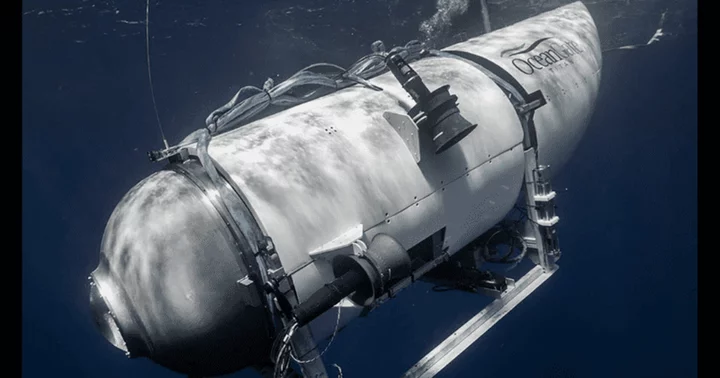HALIFAX, NOVA SCOTIA: The search for the missing tourist submersible, the Titan, is reportedly on after it went missing on Sunday, June 18. Reports said that the submersible, made up of carbon fiber and titanium, disappeared 12,500ft below the Atlantic Ocean an hour and 45 minutes after it went underwater. It is reportedly said to be now left with just 70 hours of emergency oxygen.
British billionaire Hamish Harding, OceanGate CEO Stockton Rush and French explorer PH Nargeolet are three of the five passengers onboard the Titan, which was heading towards the Titanic's wreck. The trip was priced at $250,000 per head. The Daily Mail reported that if rescuers succeeded in finding the submersible, it would become an operation “11,000ft deeper than the deepest successful undersea rescue in history."
‘We are working toward the safe return of the crewmembers’
Rear Admiral John Mauger of the US Coast Guard said, “It is a challenge to conduct a search in that remote area but we are deploying all available assets to make sure we can locate the craft and rescue the people on board.”
Tour firm OceanGate added, “'We are deeply thankful for the extensive assistance we have received from several government agencies and deep sea companies in our efforts to reestablish contact with the submersible. We are working toward the safe return of the crewmembers.”
While authorities and people race to locate and rescue those aboard the Titan, here are the only four submarine rescue operations that were successful.
HMS K13
During the time of the World War I in 1917, the HMS K13 submarine was in Gare Loch, Scotland, performing sea trials. However, it did not level out at a depth of 20 feet before sinking into the depths. As per reports, 80 people were inside the vessel when it started flooding as four ventilators had not been closed.
A rescue operation could only be launched the next day. Personnel had to attach an airline to the sub before filling its ballasts with air to bring up the sub. Once they managed to pull it out, its hull had to be cut open to save those inside. Only 48 of the 80 managed to survive.
USS Squalus
In 1939, the submarine USS Squalus went under 240ft of water with 56 crew members and three civilian contractors after an engine failure. Of the 59 onboard, 26 died. However, after much effort, 32 crew members and one civilian were saved. Later, four divers — Chief Machinist’s Mate William Badders, Chief Boatswain’s Mate Orson L Crandall, Chief Metalsmith James H. McDonald, and Chief Torpedoman John Mihalowski — were given the Medal of Honor for their contribution to the operation.
Pisces III
The 1973 rescue operation of Pisces III was reportedly the most successful as nobody died. British engineers Roger Mallinson and Roger Chapman were onboard the vessel to submerge a telephone cable in the seabed when they got stuck at almost 1,600ft off the southwest coast of Ireland. After being inside the steel sub, which had a diameter of six feet, for 84 hours and 30 minutes, they were eventually rescued.
Chapman later said, “We had 72 hours of life support when we started the dive so we managed to eke out a further 12.5 hours. When we looked in the cylinder, we had 12 minutes of oxygen left.”
AS-28
In 2005, fishing nets trapped the AS28 Priz submarine as it undertook a military exercise. However, a multinational effort paid off as after two days, all seven crew members were saved. It was reportedly said that at the time they were rescued, there was just four to six hours of air remaining inside the submarine.









